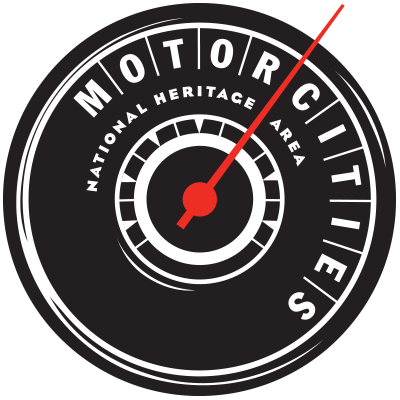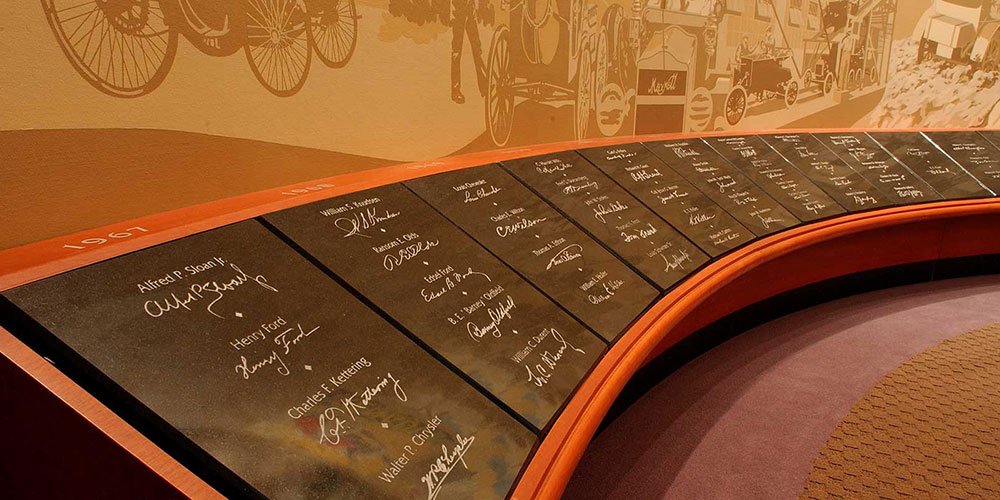by Robert Tate, Automotive Historian and Researcher
Images Courtesy of Camilo Pardo, Yoshiharu Miyakawa, Elaine Pesser and Joe Williams
Published 2.9.2022
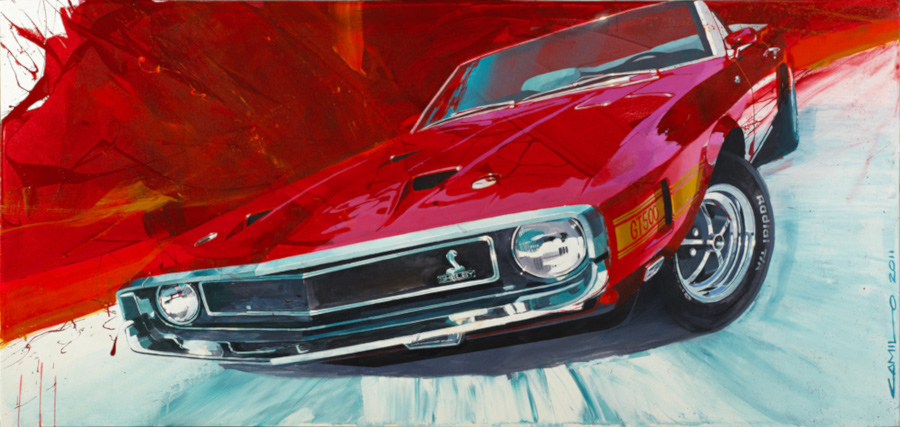 1969 Ford Mustang Shelby GT 500 by Camilo Pardo
1969 Ford Mustang Shelby GT 500 by Camilo Pardo
One of the most iconic vehicles of the 20th Century was the Ford Mustang that was introduced in April 1964. The Mustang was an immediate hit among consumers, and most of the models are very popular, even today. Many automotive historians have called the Mustang one of the most successful automobiles ever introduced and manufactured since World War II.
On a historical note, the Mustang Convertible in 1964 had a sticker price of $2,730, along with the 1964 Mustang hardtop model which was priced at $2,455.
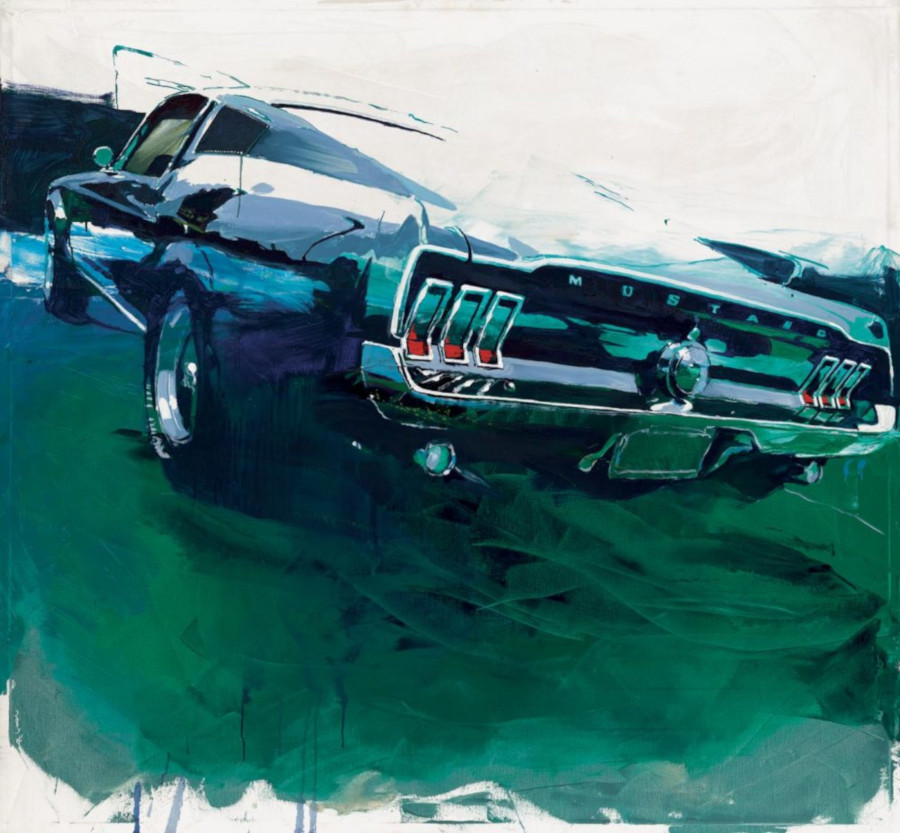 1967 Ford Mustang rear end illustration by Camilo Pardo
1967 Ford Mustang rear end illustration by Camilo Pardo
Today, many great artists like the talented Camilo Pardo, best known as the main designer of the mid-2000 Ford GT and the recreation of the legendary LeMans winning racer, have created great paintings and illustrations of classic early Mustangs. Pardo’s painting of the 1967 Mustang reflects a great iconic design that never goes out of style. He has a great talent and passion for painting vintage automobiles.
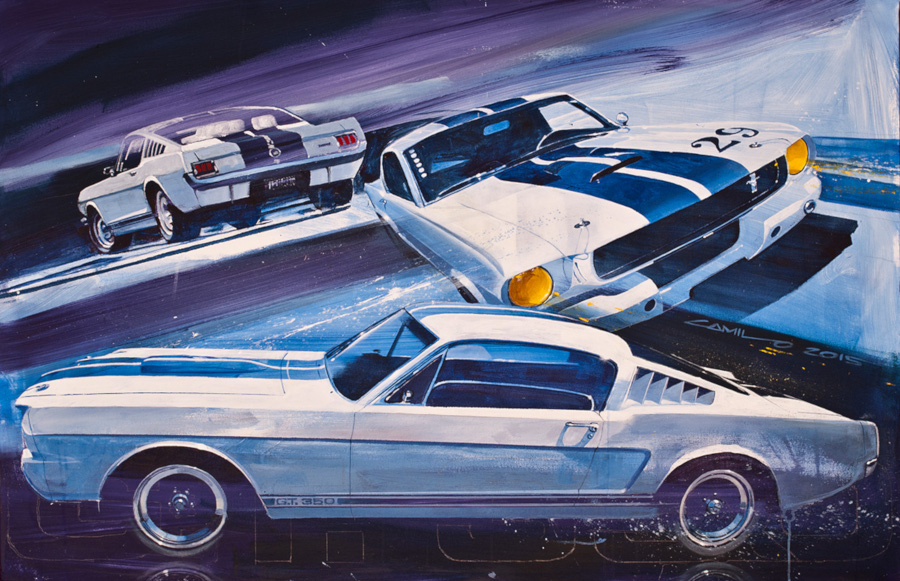 Ford GT 350 by Camilo Pardo
Ford GT 350 by Camilo Pardo
The Ford Mustang illustrated by artist Yoshiharu Miyakawa brings out a contrasting style in comparison to other artists, and really looks great.
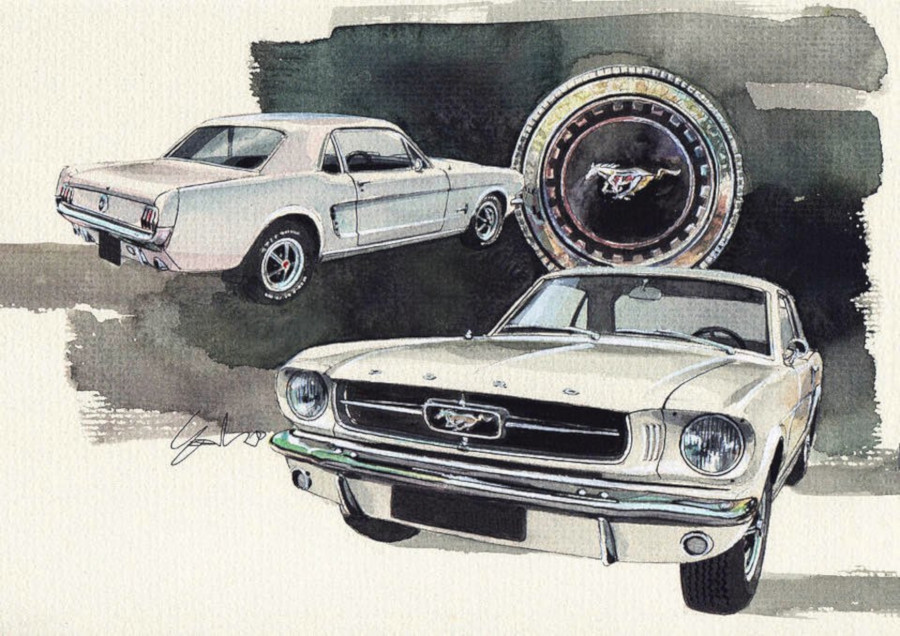 1964 Ford Mustang illustration by Yoshiharu Miyakawa
1964 Ford Mustang illustration by Yoshiharu Miyakawa
It is important to note that Ford Motor Company and Carroll Shelby began production of the GT Fastback Mustang with a 350 V8 engine in 1965-66, and the model became very popular. It also attracted many automotive enthusiasts around the country, including myself.
The Mustang was redesigned for 1967. The new model offered a more muscular look and was fitted with a very powerful engine. The front-end design still featured the poplar galloping horse emblem which most automotive enthusiasts really enjoyed. The 1967 and 1968 Mustang fastback models were very popular, especially after the car played a key role in the popular 1968 movie “Bullitt” starring the late Steve McQueen. Automotive enthusiasts and Mustang lovers around the world still talk about that iconic chase scene in the movie.
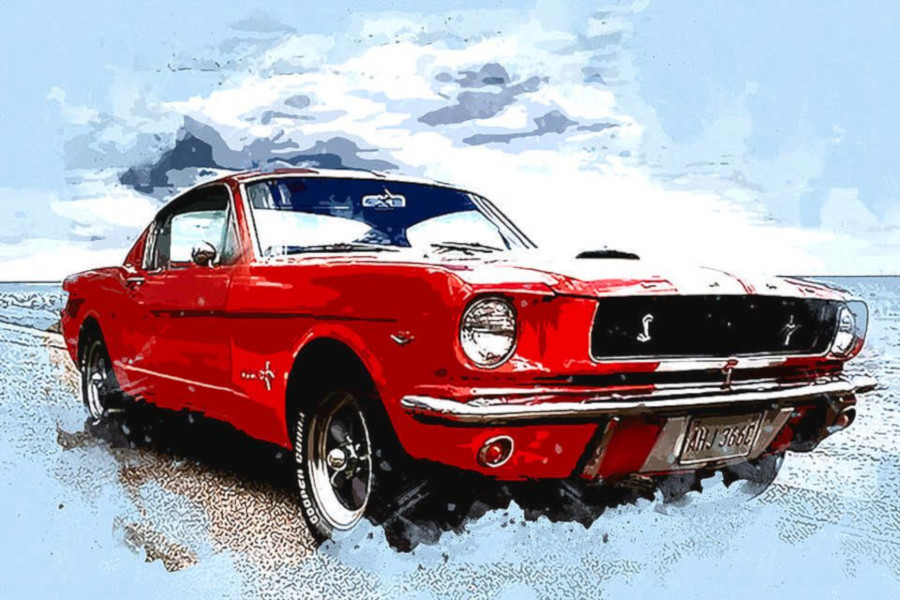 Red Mustang Shelby illustration by Elaine Pesser
Red Mustang Shelby illustration by Elaine Pesser
The red Ford Mustang painting by Elaine Pesser is a great looking automotive illustration. She has worked in traditional media of watercolor, oils and acrylics. Pesser is very talented, and her automotive illustrations are inspirational. The red Mustang illustration comes right out of the page and drives right toward you.
Ford introduced the Musang Boss 302 and 429 models in 1969. Automotive historians have said that the word “Boss “was chosen because it was a hip and contemporary word from the era.
The 1970 Mustang Boss 302 in the black and white pencil drawing is exquisite, as created by Joe Williams. The illustration has a lot of great detail with Faber Castell pencils. I could see this illustration hanging on one of my walls in my home.
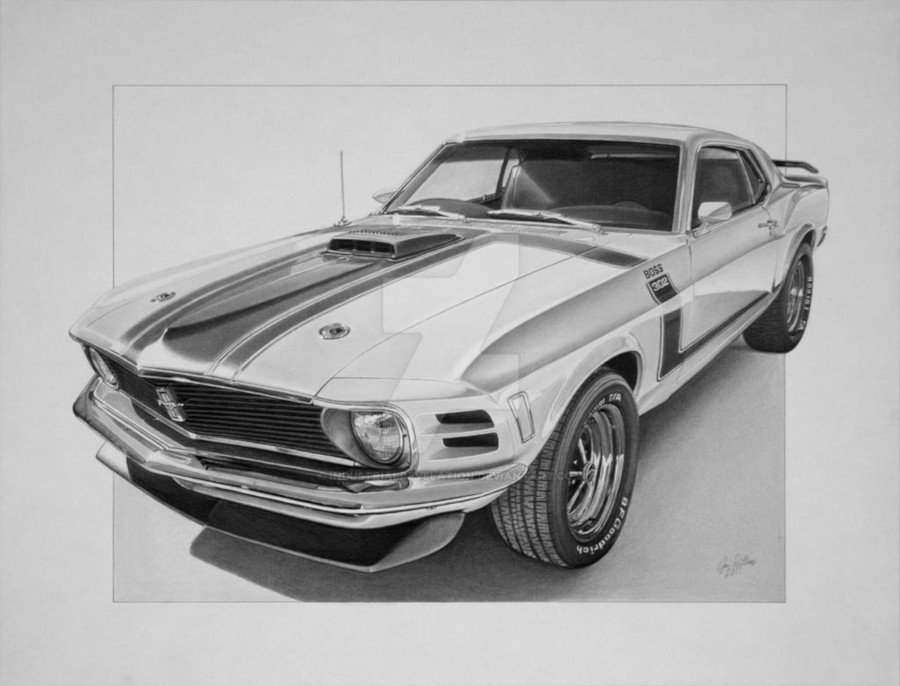 1969 Mustang Boss 302 by Joe Williams
1969 Mustang Boss 302 by Joe Williams
The 1970 Mustang Boss 302 was a classic muscle car, continuing the art of selling horsepower during the 1970s. The greatest single automotive success of the 1960s and the early 1970s was the Mustang. This extraordinary achievement can be credited to Lee Iacocca, who rose through the ranks at Ford Motor Company to become its president.
In conclusion, I also would like to dedicate this story to the men and women artists and illustrators who have the God-given talent to bring the history of the iconic Mustang to life.
Bibliography
Dammann, George H. “Illustrated History of Ford.” Crestline Publishing, 1970.
Langworth, Richard M. “Encyclopedia of American Cars, 1930-1980.” By the Editors of Consumer Guide, 1984.

